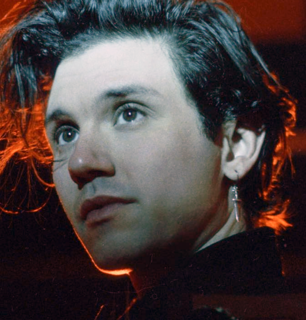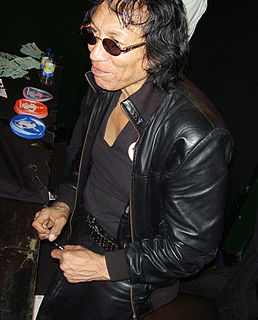A Quote by Kyle Baker
They praise these tiny indie bands, but if a band finally gets mainstream success, the same people who praised them attack them for 'selling out.' People often play at being nonconformists to mask their own feelings of not fitting in.
Related Quotes
I always felt, rather than play by the mainstream standards, we've always done what we do and the mainstream has finally decided to, like that but, we've only gotten more extreme so, the band hasn't got more commercial, it's just that more people understand where we're coming from so more people are in to it.
I played in rock bands in college and then right out of college I moved over to Europe and lived in Ireland for about four years playing in indie rock bands. I love and miss being in a band, I still am in a band but pursuing that as a career I definitely missed it but I felt like that ship had sailed.
There's nothing weirder than when your band finally gets big and you're playing sold-out arenas and you're selling millions of records, and you dread being a part of it all. It wasn't some master plan to go solo. I was just like, I would rather do my own thing, be happy, and have it be ten times less popular. That was really it. It just wasn't fun, the stress.
Sometimes it's just the creative intent of an artist or band that inspires me. I'm generally drawn to artists or bands that put themselves out on a limb somewhat and do something that infuriates both the mainstream and the indie purists, but that can't necessarily be classed as either. To me it seems somewhat convenient to be on either end of that scale.
If you're remarkable, then it's likely that some people won't like you. That's part of the definition of remarkable. Nobody gets unanimous praise - ever. The best the timid can hope for is to be unnoticed. Criticism comes to those who stand out.
Playing it safe. Following the rules. They seem like the best ways to avoid failure. Alas, that pattern is awfully dangerous. The current marketing “rules” will ultimately lead to failure. In a crowded marketplace, fitting in is failing. In a busy marketplace, not standing out is the same as being invisible.
That's why you put out records: hoping that people will connect with them. I mean, I play music for myself, for sure, and I would still play music even if people didn't like it. But it means a lot when it connects to people and they enjoy it. But it's funny: you get criticism as much as you get praise. It kind of evens out after awhile.


































